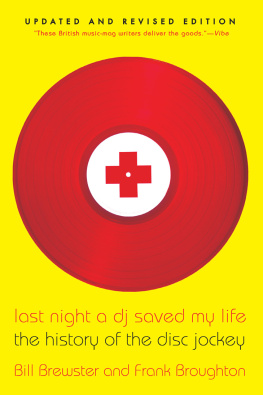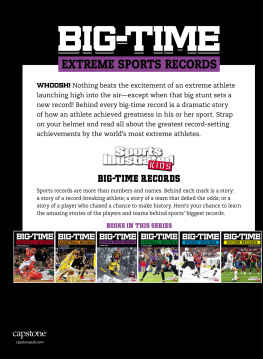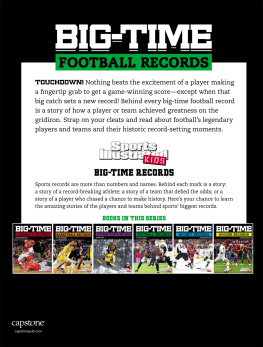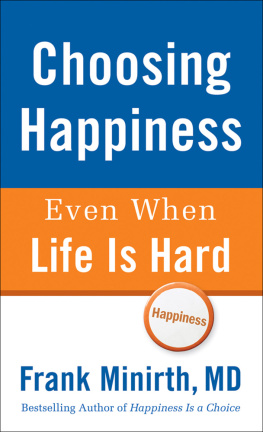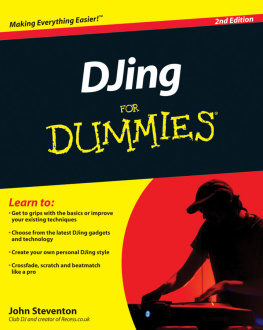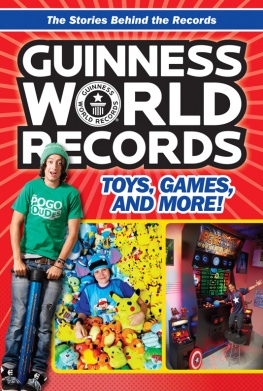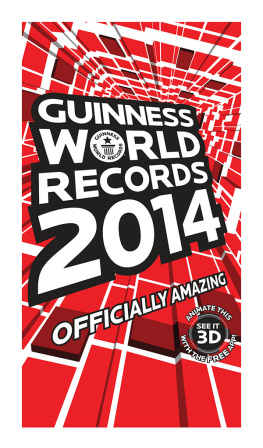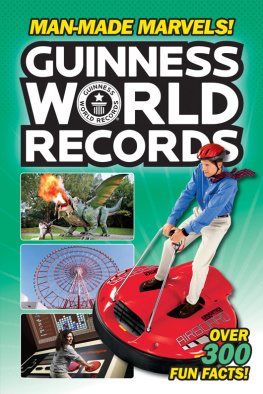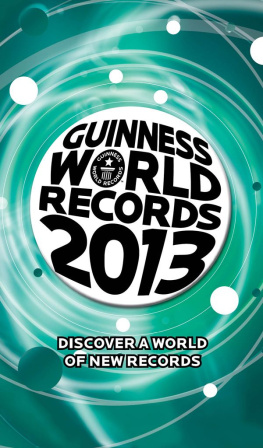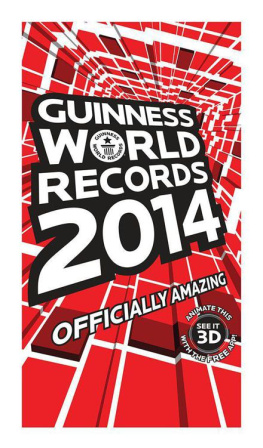How to DJ right
www.groveatlantic.com
How to DJ right
The art and science of playing records Frank Broughton & Bill Brewster

Copyright 2002, 2003 by Bill Brewster and Frank Broughton
All rights reserved. No part of this book may be reproduced in any form or by any electronic or mechanical means, or the facilitation thereof, including information storage and retrieval systems, without permission in writing from the publisher, except by a reviewer, who may quote brief passages in a review. Any members of educational institutions wishing to photocopy part or all of the work for classroom use, or publishers who would like to obtain permission to include the work in an anthology, should send their inquiries to Grove/Atlantic, Inc., 841 Broadway, New York, NY 10003.
Printed in the United States of America
Published simultaneously in Canada
Library of Congress Cataloging-in-Publication Data
Broughton, Frank.
[How to DJ (properly)]
How to DJ right: the art and science of playing records / Frank Broughton and Bill Brewster.
p. cm.
Originally published: How to DJ (properly). London: Bantam, 2002.
ISBN-10: 0-8021-3995-7
ISBN-13: 978-0-8021-3995-5
1. Disc jockeysVocational guidance. I. Brewster, Bill. II. Title.
ML3795.B825 2003
791.443-dc21 2002044686
Design by Julia Lloyd
Photography by John Bland
Illustrations by Trudi Cross
Grove Press
an imprint of Grove/Atlantic, Inc.
841 Broadway
New York, NY 10003
Distributed by Publishers Group West
www.groveatlantic.com
08 09 10 15 14 13 12 11 10 9
For Francls Grasso (1948-2001)
and Steve DAcqulsto) (1953-2001)
They did It for love and made less than the bartender.

The most moving compliments for our last book came from DJs who said it had changed the way they saw their craft. Knowing the history of DJing made them look at what they do for a living with fresh eyes. This book aims to build on that idea. It describes the nuts and bolts of performing with recorded music, but it also tries to encourage a deeper understanding of what DJing is and why it can be so powerful.
It used to be that the only reason for becoming a DJ was an impractical and overwhelming passion for music. Now that playing records is a glamorous career option, many kids reasons for taking it up are far less noble. Were happy to teach them the skills they need to chase their dreams of money and celebrity, but to get to them theyll also have to read our propaganda about how the craft should really be practiced.
DJing is a thoroughly intuitive activity, ruled by improvisation and emotions and a profound understanding of what makes people tick. What you need to DJ (right) is experience, sensitivity, and a lovers drive to share musical pleasure. Without these you could perhaps be a successful DJ, but we dont think youd ever be a great one.
If youre going to play records in public, the most important thing is to do it your way and no one elses. This is a collection of possibilities, not a rule book. Have fun with it and dont believe everything we say.
Frank and Bill, 2002
The craft
How to DJ right
Its only playing other peoples records
DJs track down greatness in music and squeeze it together. Like a master chef who picks just one perfect cherry from each tree to make his pie, a DJ condenses the work and talent of hundreds of musicians into a single concentrated performance. DJs bring all the right things together - thats why we love them so much.
And they make it to measure. None of this off-the-rack, one-size-fits-all rubbish; when you hear a DJ play, youre getting a unique performance, exactly suited to the moment. Proper DJs dont just trot out a load of nice tunes, they think carefully about the time, the place, and the people in front of them, and choose something thats perfect.
This is the real skill of DJing, and it doesnt come easily. Knowing music, finding music, understanding music is something that takes years. And once youve started, theres no end. The real work of a DJ happens behind the scenes - searching dark record stores, devouring endless lists and daunting stacks of vinyl, and sniffing out the wonders they contain. Playing records is rarely hard work, but doing the research and amassing the knowledge to do it well is a full-time job.
The other great task ahead of you is to learn about people. You know your own musical tastes; now you have to understand everyone elses. Not only that, but you must learn about their feelings -what makes them laugh and smile and dance and go crazy. Again, this takes time and experience. Your brain must record and tabulate the wildly different emotions music can generate. A great librarian knows which shelves the raunchiest, most revolutionary books are on; a great guitarist knows where all the good notes live. A great DJ knows which records make people lose themselves.
A musician, however legendary, is trapped by the limitations of his instrument. But as a DJ, you have the entire history of recorded sound to play with. Unlike a band, forced to plow through your back catalog (again) through bad amplifiers, you can choose from every artist, every track, every remix ever made, and you can deliver them with clear, crisp studio perfection. You might pick the funkiest two bars of a musicians entire life and loop them as a little intro. You might take two records made thirty years apart and place them neatly side by side. You might pick the one track Supertramp made that can send a deep house crowd bonkers (were not telling) and happily dismiss everything else in their entire career as pointless. We wont deny that the average musician is probably far more skilled than the average DJ, but doubtless the DJ controls more musical power than the musician ever did.
A respectable job?
As a DJ, you become the focus for the greatness in the music you play. All the emotional force, the lyrical, spiritual impact of your records, gets reflected back to you - even if youre tired and slightly shitfaced and keen to see the end of the night. Track down some good tunes, patchwork them together, and people act as if youve made all this music from scratch. It becomes truly your performance. Curses, say the worlds rock stars. Heres my room number, says the DJ.
Added to this is the jobs enviable cultural clout. The DJ is the tastemaker, the discoverer, the champion of a new sound or scene. No musical movement can spread its wings too far without the DJs approval. People still write endless books about how Muddy Waters, the Beatles, and Bob Dylan changed music. The truth is they wouldnt have affected much beyond their own backyards without DJs playing their records. And a good DJ is by definition a permanent revolutionary. While musicians live in a time capsule built around their one greatest year, a DJ is always searching for the next song - the new Fatboy Slim single, not the old one; the next U2, not the last lot - never playing the same set twice for fear of losing his reputation as musics evangelist. The DJ is the only figure with any power in the music industry who isnt an indentured slave to the record labels and their conservatism - the greatest freelance music maker to date.
Thanks to this gunslingin freedom, the DJ has for nearly fifty years been musics prime mover. The DJ realized his power when he cultivated first rhythm and blues then rock n roll, and despite murderous opposition (ask Alan Freed) spread them across the airwaves. Since then the DJ has snatched the keys to musics patent office and conspired with postmodernism to lock the musician out. Live music sustained itself by dreaming of the next big thing and reheating rock every ten years. Meanwhile, the truly novel forms were being created by the collision of vinyl on DJs turntables. Reggae, disco, hip hop, house, techno, drum & bass, garage - all forms born and bred not by musicians but by the DJ. These genres didnt emerge from some jam-session epiphany: they came from the DJ trying every trick in the book to keep hold of the dancefloor - his high-maintenance lover.
Next page

